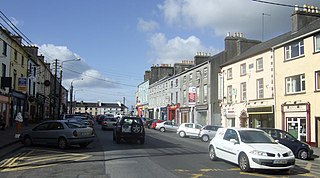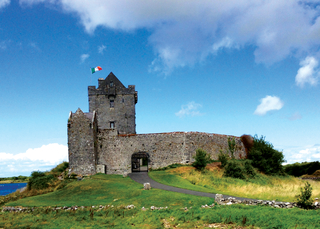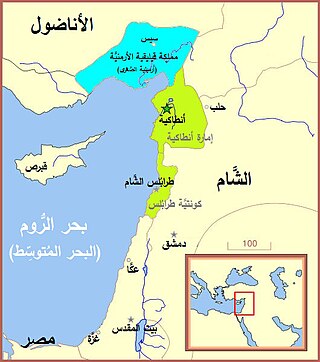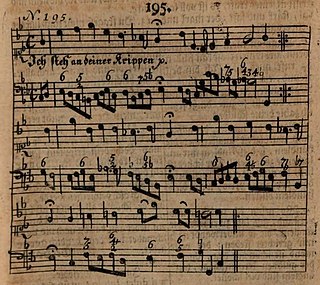Guaire Dall was an Irish poet, fl. 849.
Guaire Dall was the composer of two verses included, sub anno 849, in the Annals of the Four Masters, concerning the execution of king Cinaeth mac Conaing of Ciannachta Breagh.
O Teamhair, O beloved hill,
thou hast rejected my company;
Thou hadst, if thou hadst not abandoned him,
the materies of a King of all Ireland;
O Tailtin, who art illustrious, pure,
thou victorious land of women,
It is pleasant to enumerate thy noble tribes
and their virtues at all times.

Gort is a town of around 2,800 inhabitants in County Galway in the west of Ireland. Located near the border with County Clare, the town lies between the Burren and the Slieve Aughty and is served by the R458 and R460 regional roads, which connect to the M18 motorway.

"Be Thou My Vision" is a traditional Christian hymn of Irish origin. The words are based on a Middle Irish poem that has traditionally been attributed to Dallán Forgaill.

Uí Fhiachrach Aidhne was a kingdom located in what is now the south of County Galway.

Dunguaire Castle is a 16th-century tower house on the southeastern shore of Galway Bay in County Galway, Ireland, near Kinvara. The name derives from the dun (fort) of King Guaire, the legendary king of Connacht.

The siege of Antioch occurred in 1268 when the Mamluk Sultanate under Baibars finally succeeded in capturing the city of Antioch. Prior to the siege, the Crusader Principality was oblivious to the loss of the city, as demonstrated when Baibars sent negotiators to the leader of the former Crusader state and mocked his use of "Prince" in the title Prince of Antioch.
Fíachnae mac Báetáin, also called Fíachnae Lurgan or Fíachnae Find, was king of the Dál nAraidi and High King of the Ulaid in the early 7th century. He was a son of Báetán mac Echdach and brother of Fiachra Cáech, grandson of the Ulaid king Eochaid mac Condlai and father of Mongán mac Fiachnai.

Shakespeare's Sonnet 40 is one of the sequence addressed to a well-born, handsome young man to whom the speaker is devoted. In this poem, as in the others in this part of the sequence, the speaker expresses resentment of his beloved's power over him.

Psalm 90 is the 90th psalm of the Book of Psalms, beginning in English in the King James Version: "Lord, thou hast been our dwelling place in all generations". In the slightly different numbering system used in the Greek Septuagint and Latin Vulgate translations of the Bible, this psalm is Psalm 89. In Latin, it is known as "Domine refugium tu factus es nobis in generatione et generatione". It is the opening psalm of Book 4 of the psalms. Uniquely among the Psalms, it is attributed to Moses. It is well known for its reference in verse 10 to human life expectancy being 70 or 80 : it is believed that this verse was the influence for the opening words of Abraham Lincoln's Gettysburg Address.
Guaire Aidne mac Colmáin was a king of Connacht. A member of the Ui Fiachrach Aidhne and son of king Colmán mac Cobthaig. Guaire ruled at the height of Ui Fiachrach Aidne power in south Connacht.

The Festival Te Deum is the popular name for an 1872 composition by Arthur Sullivan, written to celebrate the recovery of Albert Edward, Prince of Wales from typhoid fever. The prince's father, Prince Albert, had died of typhoid fever in 1861, and so the prince's recovery was especial cause for celebration.

The Te Deum for the Victory at the Battle of Dettingen in D major, HWV 283, is the fifth and last setting by George Frideric Handel of the 4th-century Ambrosian hymn, Te Deum, or We Praise Thee, O God. He wrote it in 1743, only a month after the battle itself, during which Britain and its allies Hannover and Austria soundly routed the French.

Cenél Áeda na hEchtge was a trícha cét (later a cantred, and which was the original formation of the southern part of the barony of Kiltartan, County Galway. This was the clan name of the O Shaughnessys and O Cahills who both ruled the territory until the O Cahills were forced from the area by the O Shaughnessys. The latter remained chiefs of the area until 1691 and the head family survived in the Gort area till the demise of the senior line in the 18th century. The name was taken after the cenél of Aedh, uncle to King Guaire Aidne mac Colmáin of Connacht.
Eidhean mac Cléirigh, ancestor of the Ó hEidhin/Hynes family of County Galway, fl. 800.
Senchán Torpéist was a Gaelic-Irish poet.

Psalm 44 is the 44th psalm of the Book of Psalms, beginning in English in the King James Version: "We have heard with our ears, O God, our fathers have told us". In the slightly different numbering system used in the Greek Septuagint version of the bible, and generally in its Latin translations, this psalm is Psalm 43. In the Vulgate, it begins "Deus auribus nostris audivimus patres nostri adnuntiaverunt". The psalm was composed by the sons of Korah and is classified in the series of lamentations of the people.

Psalm 60 is the 60th psalm of the Book of Psalms, beginning in English in the King James Version: "O God, thou hast cast us off, thou hast scattered us". In the slightly different numbering system of the Greek Septuagint version of the Bible and the Latin Vulgate, this psalm is Psalm 59. In Latin, it is known as "Deus reppulisti nos et destruxisti nos". It is addressed "to the chief Musician upon Shushan Eduth", referring to the title of a song, presumably identifying the intended melody, mentioned only here and in Psalm 80, and described as "a Michtam of David, when he strove with Aramnaharaim and with Aramzobah, when Joab returned, and smote of Edom in the valley of salt twelve thousand." The heading text in the Revised Standard Version and the New American Bible Revised Edition refers to Aram-Zobah, whereas in the New King James Version the reference is to Zobah. The psalm has been called a psalm of communal lament.
The Ollamh Érenn or Chief Ollam of Ireland was a professional title of Gaelic Ireland.
Tromdámh Guaire is an Irish piece of prose satire about the relationship between the patron and poet and the abuse of privilege. Although the text itself is difficult to date, it is believed to have been composed no earlier than 1300. The only surviving copy of this text is found in the manuscript Leabhar Mhic Cárthaigh Riabhaigh or the Book of Lismore which itself dates to the fifteenth century. The story is set in seventh-century Ireland and is a literary showcase and parody of the practice of satire that was common among professional poets at the time. Tromdámh Guaire takes on a humorous look at the Bardic Order which a twelfth-century audience would have been aware of in order to "fully appreciate the biting sarcasm and satire contained in the narrative". This retrospective view does not give us an insight into seventh century Ireland, rather the twelfth-century perceptions of seventh century Ireland.

Coologe is a townland in the civil parish of Templeport, County Cavan, Ireland. It lies in the Roman Catholic parish of Templeport and barony of Tullyhaw.

"Ich steh an deiner Krippen hier" is a German Christmas hymn, with lyrics by Paul Gerhardt which were first published in 1653. It was then sung with an older melody by Martin Luther, but a melody which was likely created by Johann Sebastian Bach for Schemellis Gesangbuch of 1736 is now part of current Protestant and Catholic hymnals.